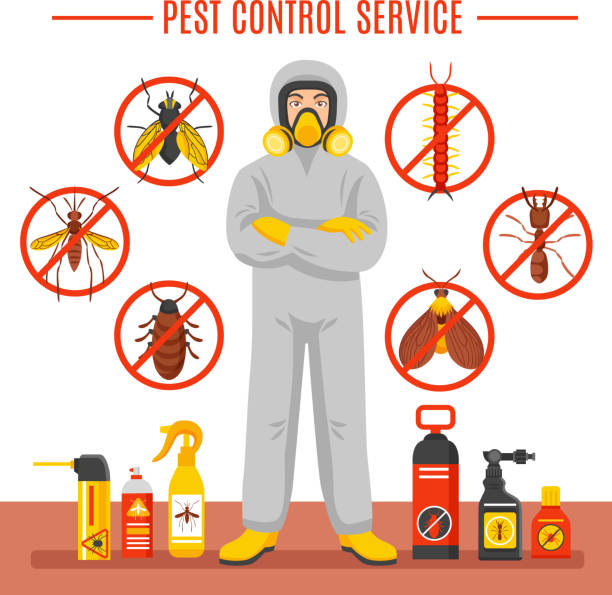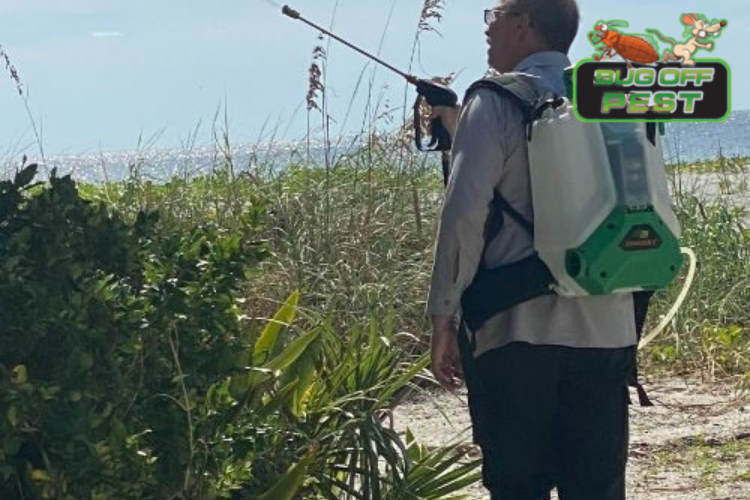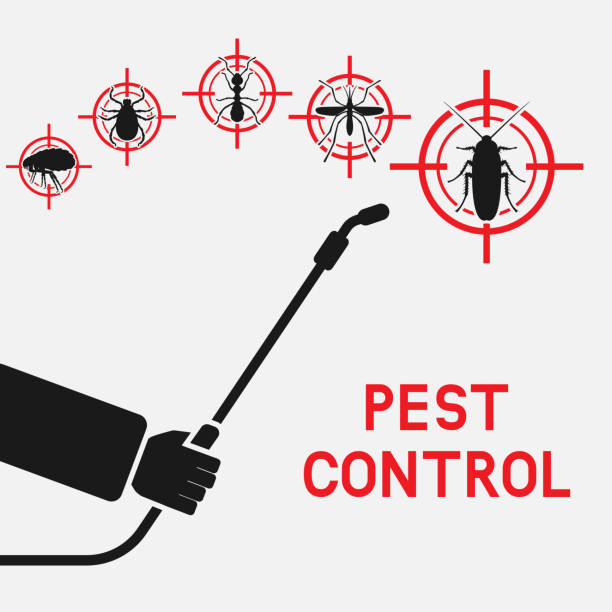Wildlife Removal Services in Port Charlotte for Humane and Humane Solutions
Wiki Article
Uncover the Relevance of Parasite Control in Preserving a Healthy Setting and Treatment Techniques

The Role of Insects in Ecological Communities
Pests, typically viewed entirely as hassles, play a diverse role in communities that is vital for keeping eco-friendly balance. They add substantially to various eco-friendly procedures, including pollination, nutrition cycling, and insect control. For circumstances, lots of insect types, such as and butterflies, are vital pollinators for a wide variety of plants, which subsequently supports biodiversity and food production.In addition, pests act as victim for countless killers, producing an important web link in food webs. This connection guarantees the survival of numerous species and aids control populations within environments (Termite treatment Port Charlotte). Decomposer insects, such as certain beetles and fungi, are instrumental in breaking down natural issue, thus enhancing dirt and facilitating nutrition recycling.
Conversely, while parasites can be beneficial, their overpopulation or intrusion into non-native settings may disrupt these ecological functions. This complexity emphasizes the importance of comprehending bug dynamics, as effective insect management methods must think about both their eco-friendly functions and possible effect on human activities. Balancing pest existence while minimizing damage is essential for protecting the integrity of communities and making sure agricultural productivity.
Health And Wellness Dangers Linked With Pests
The presence of pests in different settings expands beyond their eco-friendly roles, as they likewise position significant health threats to pets and people. Lots of insects, consisting of parasites, rats, and pests, are providers of conditions that can have major wellness implications. For example, rodents are known to transfer hantavirus and leptospirosis, both of which can cause severe respiratory system and kidney issues, specifically.Insects such as ticks and mosquitoes are notorious for spreading out vector-borne illness like jungle fever, dengue high temperature, and Lyme illness. These ailments can cause high morbidity and death rates, specifically in prone populaces. Additionally, pests like cockroaches and vermins can aggravate allergies and bronchial asthma, adding to respiratory system problems in people, especially those with pre-existing problems.
Moreover, the existence of pests can result in mental anxiety and pain, affecting total health. Contamination of food and surfaces by bug droppings and remains can result in foodborne diseases, highlighting the relevance of maintaining hygienic conditions. For that reason, recognizing the health dangers associated with parasites is essential in acknowledging the need of effective bug monitoring methods to guard animal and human health and wellness.

Benefits of Reliable Parasite Control
Effective pest control is important for keeping a risk-free and healthy atmosphere, as it continually reduces the many threats associated with bug problems. Among the primary benefits of effective insect monitoring is the reduction of carcinogen. Pests such as roaches, rodents, and insects are vectors for illness that can impact both animals and humans. By managing these populations, the chance of illness transmission is considerably lowered.Furthermore, effective parasite control safeguards residential property and structures from damage. Numerous insects, like termites and woodworker ants, can create considerable architectural damages that may need pricey fixings. By proactively handling these services, infestations and home owners can shield their investments.
One more considerable benefit is the renovation of overall quality of life. A pest-free atmosphere contributes to mental health and reduces tension connected with problems. Efficient bug control promotes a much safer atmosphere for animals and children, ensuring that homes stay refuges cost-free from hazardous chemicals and disease-causing organisms.
Typical Pest Control Techniques

In the realm of insect administration, various strategies are used to combat infestations efficiently. These techniques can be broadly classified into 3 main strategies: cultural, mechanical, and chemical controls.
Social control involves changing methods to lower insect survival, establishment, and recreation. This might include plant rotation, appropriate sanitation, and habitat control, which collectively develop an atmosphere much less for pest expansion.
Mechanical control utilizes physical methods to get rid of bugs (Termite treatment Port Charlotte). Techniques such as barriers, traps, and vacuums are frequently made use of to straight get rid of pests from a location. This approach is particularly efficient for handling rats and pests without using hazardous chemicals
Chemical control includes the application of chemicals to take care of parasites. These compounds can be classified right into herbicides, fungicides, and pesticides, each targeting particular kinds of bugs. It is vital to use these chemicals judiciously, adhering to safety guidelines and regulations to reduce prospective harm to non-target species and the environment.
Each pest control technique has its advantages and limitations, and usually, an incorporated strategy combining multiple approaches yields the ideal results in preserving a pest-free environment.
Lasting Pest Monitoring Practices
Lasting pest management techniques incorporate a series of methods developed to reduce environmental influence while effectively regulating parasite populations. These practices focus on making use of eco-friendly methods over chemical pesticides, therefore minimizing the danger of harm to non-target varieties, including advantageous insects, wild animals, and people.Integrated Insect Administration (IPM) is a cornerstone of sustainable practices, integrating organic, cultural, mechanical, and chemical methods to handle pests. For example, biological control involves presenting all-natural predators or bloodsuckers to suppress parasite populations. Social methods, such as plant rotation and polyculture, disrupt pest life process and enhance ecological community resilience.
Mechanical methods, such as catches or obstacles, can successfully prevent parasite access without chemical treatment. Additionally, preserving healthy and balanced communities via proper dirt management, plant health and wellness, and biodiversity can naturally alleviate parasite issues.
Education and learning and awareness are important parts, empowering individuals and neighborhoods to recognize bug hazards early and execute safety nets. Termite treatment Port Charlotte. By cultivating a holistic method that stabilizes parasite control with ecological stability, lasting parasite management practices not only secure plants and frameworks however likewise add to a healthier environment for future generations
Final Thought

Comprehending the health dangers connected with parasites is critical in acknowledging the need of effective insect monitoring strategies to protect animal and human health.
Effective bug control is essential for maintaining a safe and healthy atmosphere, as it continually mitigates the various threats associated with bug problems.Integrated Parasite Management (IPM) is a cornerstone Bed bug exterminator Port Charlotte of sustainable methods, incorporating organic, social, mechanical, and chemical tactics to manage insects. By comprehending the duty of parasites, identifying associated health and wellness risks, and employing diverse treatment methods, a lasting approach to pest administration can be achieved. Integrated Pest Administration (IPM) highlights an alternative methodology that mitigates injury to useful microorganisms while successfully regulating bug populaces.
Report this wiki page